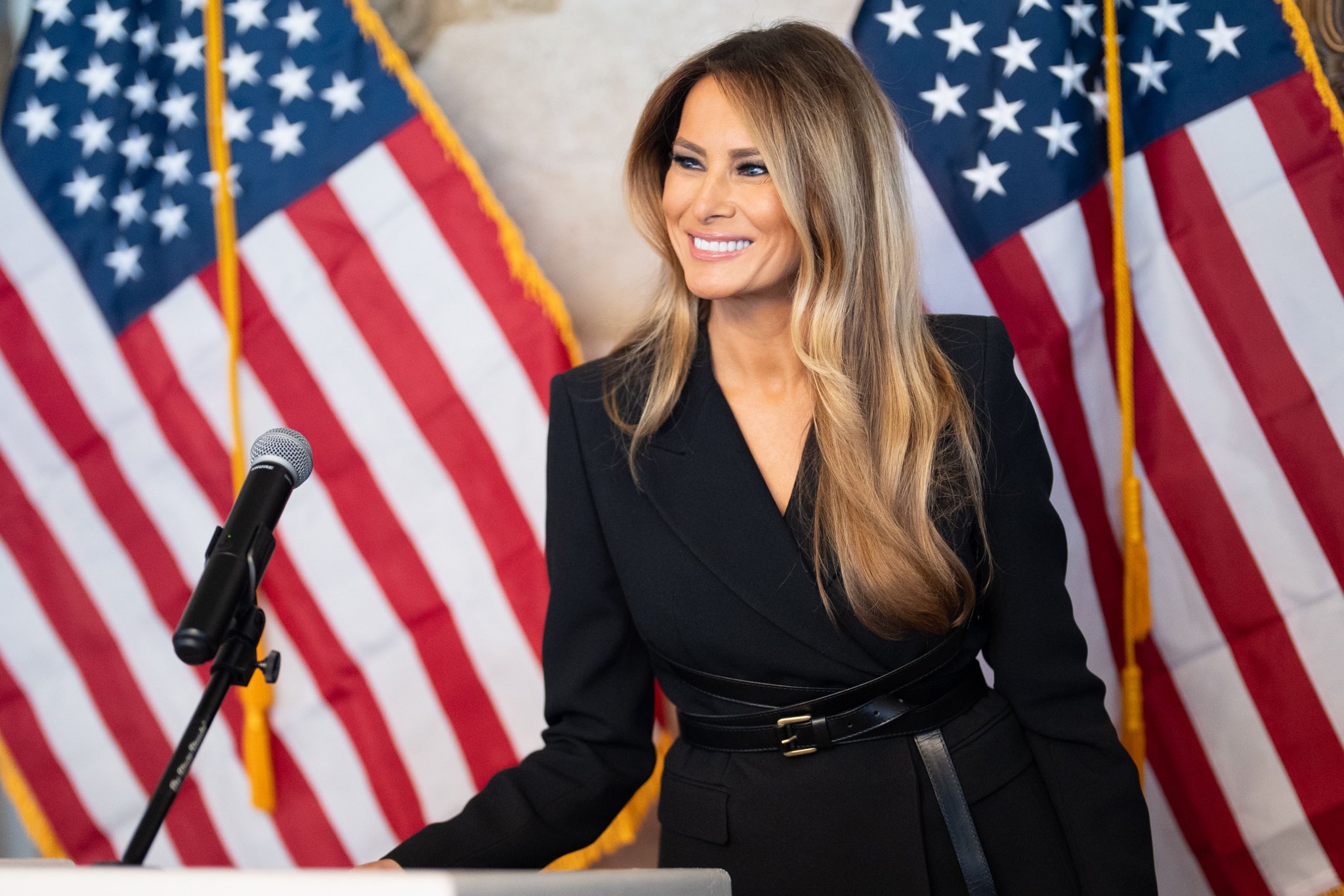
|
Getting your Trinity Audio player ready...
|
First Lady Melania Trump’s advocacy has led to the signing of the Take It Down Act. The landmark federal law aims to curb the spread of non-consensual intimate images, including AI-generated deep fakes and revenge porn.
The bipartisan legislation criminalises the distribution of intimate images without consent and requires social media platforms and websites to remove such content within 48 hours of being reported by victims. It covers both authentic and AI-manipulated visuals.
The law also holds tech companies accountable for removing harmful content, and major platforms like Meta, TikTok, and Snapchat have expressed support for the bill.
Melania Trump, who championed the measure, described the law as a powerful step forward in efforts to ensure that every American, especially young people, can feel better protected from their image or identity being abused.
Speaking at the bill’s introduction in March, she pointed out the dangers faced by youth:
“It’s heartbreaking to witness young teens, especially girls, grappling with the overwhelming challenges posed by malicious online content like deep fakes. This toxic environment can be severely damaging.”
She called the bill “a national victory that will help parents and families protect children from online exploitation.”
President Donald Trump signed the bill into law on May 19, 2025, during a ceremony at the White House, calling it a necessary response to the growing crisis of digital sexual abuse.
“With the rise of AI image generation, countless women have been harassed with deep fakes and other explicit images distributed against their will. This is … wrong … just so horribly wrong,” Trump said.
The Take It Down Act, which passed Congress earlier this year with near-unanimous support, is a significant step in combating the misuse of artificial intelligence in online harassment and exploitation, particularly of women and minors.
The new law represents one of the most robust federal efforts yet to curb digital exploitation and enforce accountability on online platforms in the AI era.




